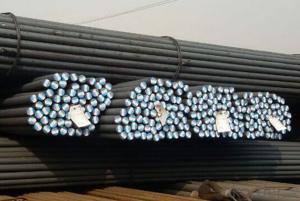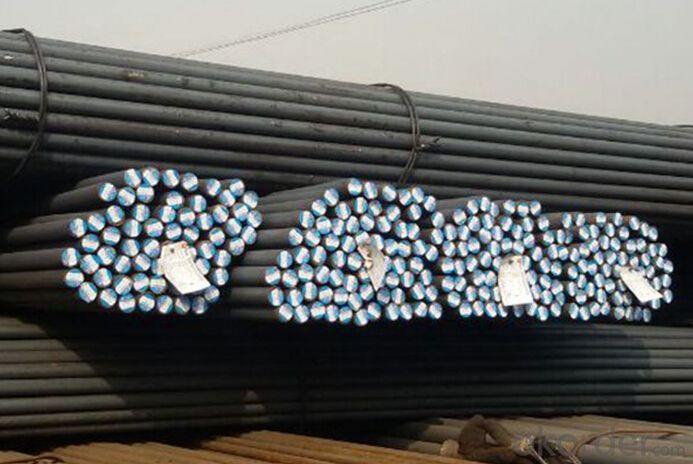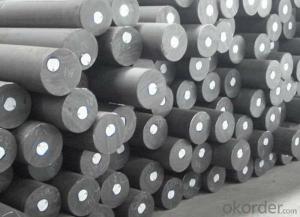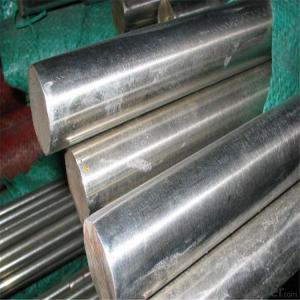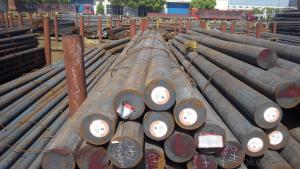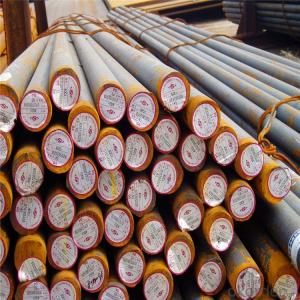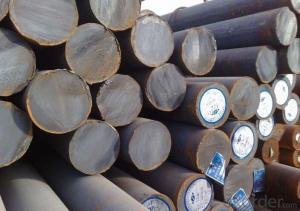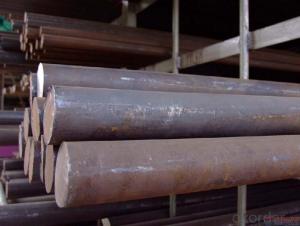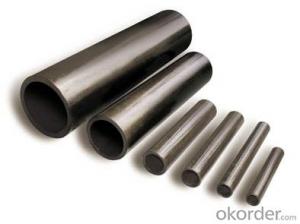Grade SAE 1045 High Carbon Steel Price Hot Rolled
- Loading Port:
- Tianjin
- Payment Terms:
- TT OR LC
- Min Order Qty:
- 3 m.t.
- Supply Capability:
- 10000 m.t./month
OKorder Service Pledge
OKorder Financial Service
You Might Also Like
Specification
Product Description:
Material | 1045 | Round bar | Dia(mm) | 16-300 |
Process | EAF + LF + VD + Forged + Heat Treatment (optional) | Length (mm) | Max 12000 | |
Heat treatment | Normalized / Annealed / Quenched / tempered | Flat bar | Thickness(mm) | 8-500 |
Delivery condition | Hot forged +Rough machined (black surface after Q/T)+ Turned (optional) | Width(mm) | 70-200 | |
Test | Ultrasonic test according to SEP 1921-84 D/d | Length (mm) | Max 12000 | |
OKorder is offering Grade SAE1045 carbon steel at great prices with worldwide shipping. Our supplier is a world-class manufacturer of steel, with our products utilized the world over. OKorder annually supplies products to European, North American and Asian markets. We provide quotations within 24 hours of receiving an inquiry and guarantee competitive prices.
Product Applications:
Grade SAE1045 carbon Steel are ideal for structural applications and are widely used in the construction of buildings and bridges, and the manufacturing, petrochemical, and transportation industries.
Product Advantages:
OKorder's Grade SAE1045 carbon steel are durable, strong, and resist corrosion.
Chemical Composition
C | Si | Mn | S | P | Cr | Ni | Mo |
0.42~0.50 | ≤0.40 | 0.50~0.80 | ≤0.045 | ≤0.045 | ≤0.40 | ≤0.40 | ≤0.10 |
Packaging & Delivery of Carbon Steel
Standard seaworthy packing or as customer required
Delivery time:
Within 30 days after order is confirmed.
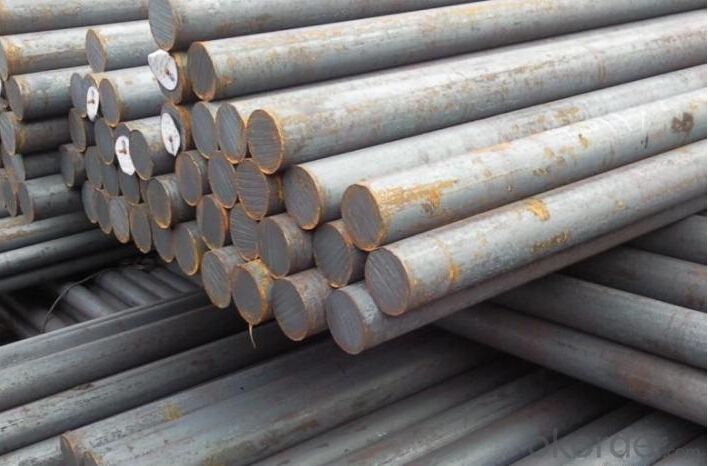
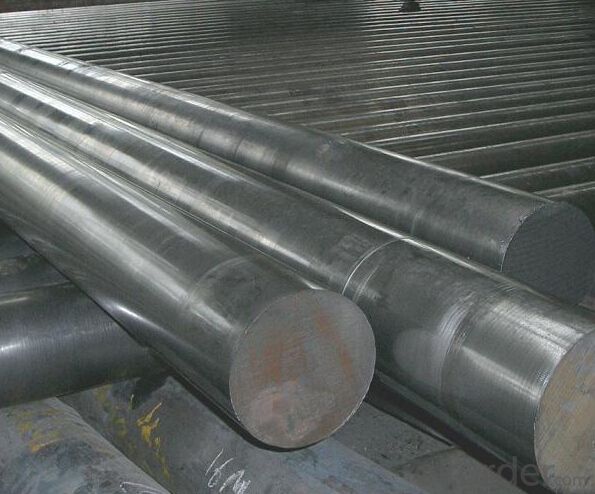
- Q: What are the different cutting techniques used for special steel?
- Some of the different cutting techniques used for special steel include abrasive cutting, laser cutting, waterjet cutting, and flame cutting.
- Q: How is special steel manufactured?
- Special steel is manufactured through a process called steelmaking, which involves combining iron with various alloying elements such as chromium, nickel, and molybdenum. This mixture is then heated and processed in electric arc furnaces or basic oxygen furnaces to remove impurities and adjust the chemical composition. The molten steel is further refined and cast into desired shapes or forms, followed by additional heat treatment processes like quenching and tempering to enhance its strength and special properties.
- Q: How does special steel contribute to the tool manufacturing industry?
- Special steel plays a crucial role in the tool manufacturing industry by providing enhanced strength, durability, and wear resistance to tools. This type of steel is specifically designed to withstand extreme conditions and heavy usage, allowing tools to perform efficiently and last longer. With its unique properties, special steel enables the production of high-quality, precision tools that can handle demanding tasks in various industries, ultimately enhancing productivity and ensuring safety for workers.
- Q: What are the different types of tool steel?
- There are several different types of tool steel, including high-speed steel, cold work steel, hot work steel, and plastic mold steel. Each type of tool steel is specifically designed for different applications and has unique properties that make it suitable for specific tasks.
- Q: What are the advantages of using special steel in construction?
- The advantages of using special steel in construction include its superior strength and durability, which allows for the construction of taller and more complex structures. Special steel also offers excellent resistance to corrosion, fire, and extreme weather conditions, ensuring the longevity of the building. Additionally, it provides greater design flexibility, enabling architects and engineers to create innovative and unique structures. Finally, special steel is sustainable and recyclable, making it an environmentally friendly choice for construction projects.
- Q: How does special steel resist oxidation?
- The outstanding resistance to oxidation exhibited by special steel is well-known. This is mainly attributed to the inclusion of elements like chromium, nickel, and manganese in its composition. These elements combine to create a passive film, known as a protective layer, on the steel's surface. This film effectively shields the steel from oxygen and moisture. Chromium is the principal element responsible for the oxidation resistance of special steel. It undergoes a reaction with atmospheric oxygen, resulting in the formation of a thin layer of chromium oxide on the steel's surface. This oxide layer is exceptionally stable and prevents any further oxidation of the underlying metal. It acts as a protective shield, hindering the penetration of oxygen and moisture into the steel, which could otherwise lead to corrosion or rusting. Moreover, nickel and manganese also contribute to the oxidation resistance of special steel. They assist in stabilizing the passive film created by chromium oxide and enhance its protective properties. These elements also bolster the steel's ability to withstand high temperatures and corrosive environments. Furthermore, the composition and processing techniques employed in the production of special steel play a vital role in its oxidation resistance. The steel is often subjected to heat treatment processes, such as annealing or quenching, which further enhance its resistance to corrosion. Through meticulous control of alloying elements and precise heat treatment procedures, a robust and long-lasting passive film is formed. In conclusion, special steel's ability to resist oxidation is primarily due to the presence of chromium, nickel, and manganese, which collaborate to create a protective layer on its surface. This passive film acts as a barrier against oxygen and moisture, effectively preventing corrosion and rusting. Additionally, the composition and processing techniques utilized during production significantly contribute to the exceptional oxidation resistance of special steel.
- Q: What are the advancements and trends in the field of special steel?
- In recent years, the field of special steel has witnessed significant advancements and emerging trends that have revolutionized various industries. These advancements can be primarily attributed to the growing demand for high-performance materials in critical applications, such as aerospace, automotive, energy, and construction. One of the major advancements in the field of special steel is the development of advanced manufacturing techniques. Traditional steel production methods have been replaced by more efficient processes like electric arc furnaces and vacuum induction melting, resulting in improved steel quality and enhanced mechanical properties. These advancements have facilitated the production of special steels with superior strength, corrosion resistance, and heat resistance. Another significant trend in the field of special steel is the emergence of new alloy compositions. Researchers and manufacturers are continuously exploring and developing novel alloying elements to enhance the properties of special steels. For instance, the addition of elements like chromium, molybdenum, and vanadium has led to the development of stainless steels with exceptional resistance to corrosion and oxidation. Furthermore, the field of special steel has also witnessed advancements in heat treatment processes. By employing advanced heat treatment techniques like quenching and tempering, austempering, and martempering, special steels can achieve desired hardness, toughness, and dimensional stability. These advancements have significantly expanded the application range of special steels, allowing them to be used in critical components that operate under extreme conditions. In addition to advancements in manufacturing and alloy compositions, there is a growing trend towards the development of environmentally friendly special steels. With increasing concerns about sustainability and carbon footprint, researchers and manufacturers are focusing on reducing the environmental impact of steel production. This has led to the development of special steels with lower carbon content, as well as the implementation of energy-efficient manufacturing processes. Moreover, the field of special steel is witnessing the integration of digital technologies and automation. The use of artificial intelligence, machine learning, and data analytics is enabling manufacturers to optimize production processes, improve quality control, and reduce costs. This trend towards Industry 4.0 is transforming the way special steel is produced and utilized, ensuring greater efficiency and precision in the manufacturing process. In conclusion, the field of special steel is experiencing significant advancements and trends that are driving innovation in various industries. The development of advanced manufacturing techniques, new alloy compositions, improved heat treatment processes, environmentally friendly production methods, and the integration of digital technologies are revolutionizing the properties and applications of special steel. These advancements have not only enhanced the performance and durability of special steel but also opened up new possibilities for its utilization in critical applications.
- Q: How is electrical steel used in the manufacturing of transformers?
- Electrical steel, also known as silicon steel, is crucial in the manufacturing of transformers. It is used to construct the core, which is the heart of the transformer. The unique magnetic properties of electrical steel allow it to efficiently conduct and transfer electrical energy. By laminating thin layers of electrical steel together, the core minimizes energy losses through eddy currents and hysteresis. This ensures optimal performance, high efficiency, and reduced heat generation in transformers.
- Q: How does special steel perform in terms of magnetic properties?
- Special steel can exhibit a wide range of magnetic properties depending on its composition and processing. Some special steels, such as stainless steel, are generally non-magnetic or have very low magnetic permeability. However, certain types of special steel, such as tool steel or high-speed steel, can be engineered to possess magnetic properties suitable for specific applications, such as magnetic tools or electrical transformers. Overall, the magnetic properties of special steel can be tailored to meet the desired requirements for different applications.
- Q: How does special steel perform in high-stress applications?
- Special steel performs exceptionally well in high-stress applications due to its unique properties and composition. It offers superior strength, toughness, and durability, allowing it to withstand extreme conditions without deformation or failure. Additionally, special steel exhibits excellent resistance to corrosion, heat, and wear, making it an ideal choice for challenging environments. Its high performance and reliability make it a preferred material for critical components in industries such as aerospace, automotive, and oil and gas.
Send your message to us
Grade SAE 1045 High Carbon Steel Price Hot Rolled
- Loading Port:
- Tianjin
- Payment Terms:
- TT OR LC
- Min Order Qty:
- 3 m.t.
- Supply Capability:
- 10000 m.t./month
OKorder Service Pledge
OKorder Financial Service
Similar products
Hot products
Hot Searches
Related keywords
